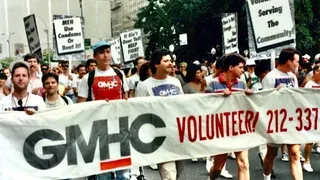June 11, 2016
Countries Commit to Double AIDS Treatment
Michael Astor READ TIME: 3 MIN.
Countries committed to nearly doubling the number of people who receive life-saving HIV treatment over the next five years as a high-level United Nations conference devoted to ending the AIDS epidemic by 2030 drew to a close Friday.
During the three-day-long meeting, countries also saw the U.N.'s 193-member states commit for the first time to monitoring the quality of treatment, with a goal of getting 90 percent of those receiving anti-retroviral medicine to reduce their viral load to the point where it is undetectable - something that improves quality of life and reduces the risk of transmission.
"It's a paradigm shift. What it's going to do is put the focus on quality. Instead of how many people have access to treatment now it's for how many people is the treatment working properly," said Sharonann Lynch, HIV & TB Policy adviser for Medecins Sans Frontiers.
In 2015, there were some 36.7 million people around the world living with HIV and about 17 million of them have access to anti-retroviral medication, according to the U.N.
At the conference, countries also committed to reducing the number of new HIV infections to below 500,000 a year by 2020, down from 2.1 million in 2015 and bringing the number of annual AIDS-related deaths to under half a million in 2020 from 1.1 million last year.
"Today is the day that we collectively say that we will end the AIDS epidemic by 2030," said General Assembly President Mogens Lykketoft. "We must pay greater attention to equality and inclusion, uphold human rights and speak out against stigma and discrimination."
The United Nations is now looking to raise $13 billion over the next three years in support of these goals.
Conference organizers said while remarkable progress has been made since the last United Nations meeting on AIDS in 2011, much remained to be done.
"For the first time in history we can say that in Africa there are more people on HIV treatment than there are new HIV infections," said UNAIDS Executive Director Michel Sidibe.
Still, the number of new HIV infections among adults has remained mostly unchanged since 2010 and key populations like young women, sex workers, prisoners, gay men, transgender people and intravenous drug users continued to be left behind.
On Thursday, the U.S. announced it would start a new $100 million Key Populations Investment Fund, intended to reach these people most at risk.
"Too many leaders say they support the end of AIDS and claim to stand with the people facing the life-threatening effects of bigotry and discrimination on full display during this week's negotiations. But for many governments these are just words_they fail to take action where it counts," Asia Russell, Executive Director of the Health Global Access Project, said in a statement. "We are therefore heartened to see the U.S. government pledging funding to directly confront the human rights violations that keep quality, evidence based prevention and treatment services from key populations around the world."
Cultural sensitivities continued to be an obstacle to combatting the disease, U.N. officials conceded, and a number of non-governmental organizations representing gay and transgender people were excluded from attending the conference after a number of conservative countries objected to their presence.
Those countries also were accused by many anti-AIDS groups of working to weaken the final outcome document.







